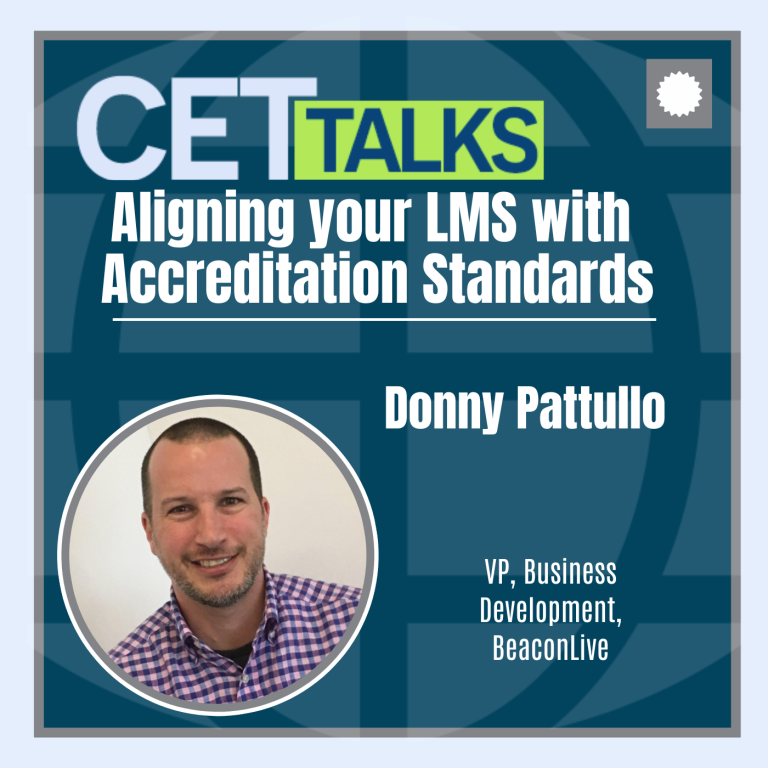.
CET Talks: Accreditation, Learning and Leadership
Episode 04
JULY 26 2023 . 24 MINUTES
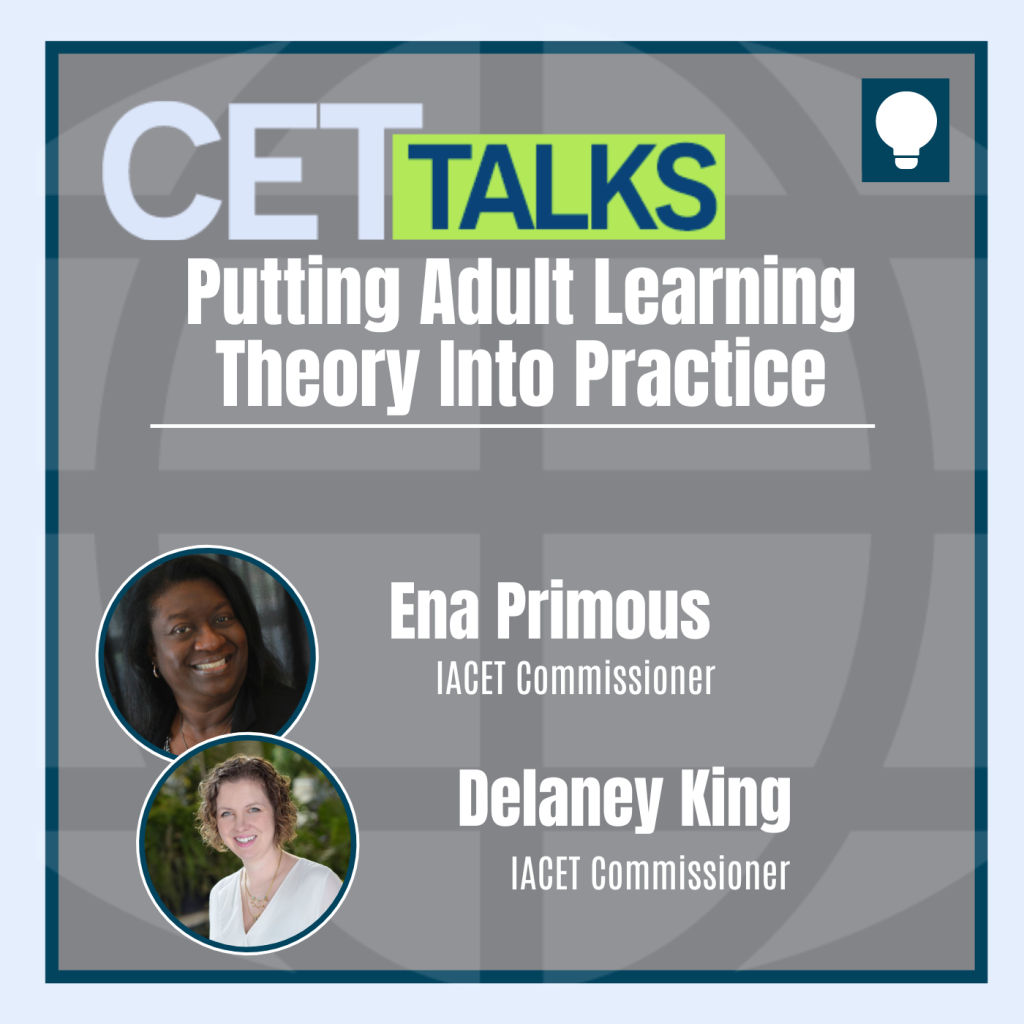
Putting Adult Learning Theory into Practice
Ena Primous and Delaney King sit down with Randy Bowman, Interim President and CEO of IACET, and co-host, Mike Veny, CEO of Mike Veny, Inc., an IACET Accredited Provider, to discuss the importance of linking adult learning theories in practice with designing for and teaching adult learners. Discover what makes someone a subject matter expert (SME) and some of the biggest mistakes instructional designers make when it comes to working with SME’s. You’ll hear about how to coach SME’s into becoming facilitators and learn details about the APATTA course.
Listen to the Podcast

Welcome to CET Talks, the International Accreditors for Continuing Education and Training’s podcast, where we convene thought leaders in the continuing education and training ecosystem to share ideas, research, best practices, and experiences that promote the creation of a world that learns better. Your hosts are Randy Bowman, Interim President and CEO of IACET, and certified corporate wellness specialist Mike Veny.
Ena Primous and Delaney King sit down with Randy Bowman, Interim President and CEO of IACET, and co-host, Mike Veny, CEO of Mike Veny, Inc., an IACET Accredited Provider, to discuss the importance of linking adult learning theories in practice with designing for and teaching adult learners. Discover what makes someone a subject matter expert (SME) and some of the biggest mistakes instructional designers make when it comes to working with SME’s. You’ll hear about how to coach SME’s into becoming facilitators and learn details about the APATTA course.

Transcription
Host: Welcome to CET Talks, the International Accreditors for Continuing Education and Trainings podcast, where we convene thought leaders in the continue education and training ecosystem to share ideas, research, best practices, and experiences that promote the creation of a world that learns better. Enjoy the episode.
Randy Bowman: Hi. Welcome to CET Talks. My name is Randy Bowman, and I am your IACET staff host.
Mike Veny: Hi, my name is Mike Veny. I am the IACET CET co-host, and I’m super excited to be here today, because I am actually considered a subject matter expert. I’m a certified corporate wellness specialist, and my company is accredited by IACET. Something I don’t think I’ve ever told you, Randy, I just wanted to share. As a subject matter expert—first of all, I still don’t know what that means, so I’m excited to learn that today—I have all this knowledge and experience in my head. Right. I had to get to this point where I had to start working with adult learners.
Randy Bowman: Oh, well, I bet that was difficult to transition.
Mike Veny: Yes. Today is going to be a very good episode. We have in the studio Ena Primous, an IACET commissioner, who has over 20 plus years in finance and higher education, adjunct faculty member and a BA in management and an MBA from Webster Una University. And we have Delaney King with us, who’s also an IACET commissioner with over 10 years as a facilitator instructor delivering specialized curriculum and training, bachelors of Education and Masters of Adult Education and Global Change with a specialization in curriculum development and education coaching for seminars, workshops, and short courses. That is very specific. So, welcome to the show. My first question. For our listeners out there, we hear this term subject matter expert all the time. What exactly is a subject matter expert, and what makes someone a subject matter expert?
Ena Primous: I give them the layman’s terms. I describe them as someone who knows their craft and can facilitate that information no matter where, when, what time, and they’re the best at what they do.
Delany King: I would agree with Ena. I think a subject matter expert is somebody who has spent the time and put the days in to better understand what they’re talking about and what others are learning about. But not necessarily does it have to be formal education. It can be non-formal education, as a subject matter expert and just experience on the job. I think a lot of times people think about it has to be something from a college or a university, but we see them in all shapes and forms. Sometimes they’re called mentors, sometimes they’re called guidance or supervisors or managers. They have many different roles.
Randy Bowman: Obviously, one of the things that you do as an instructional designer is assist the subject matter experts—I think we use the term SMEs a lot, so you may hear us say that, listeners—to basically help them connect all this knowledge and experience they have and get that transferred to these adult learners. What would you say are some of the biggest mistakes or missteps that you’ve seen when it comes to instructional designers working with SMEs?
Delany King: I would say that there’s actually a difference between a content expert and a context expert. A lot of people don’t quite know that, so a content expert is your formal knowledge person, and your context expert is your lived experiences. One of the ideas I like to give is, if you think about space, you have the space engineers who design the space shuttle who are your content experts, and then you have your astronaut who’s up in space, who’s living it, and they are your context experts. When you start working with people, it’s really important to find out where their expertise lies. Is it a lot of formal book knowledge or have they been it, lived it, done it, and that’s where they’re coming from. I think with instructional design, people will approach this as everybody is formally educated and they all come from the book learning aspect part of it, when in fact you have many astronauts out there who have been in space and can tell you all the rights and wrongs of how things work. Maybe they weren’t formally educated in that sense. Not saying that astronauts aren’t formally educated, they definitely are. I did work with NASA, so I’m not saying that.
Ena Primous: I’m not sure I have too much more to add. She’s hit the nail on the head exactly with the content and the context experts. She’s done a wonderful job.
Mike Veny: Can both of you provide an example, without naming names, of a challenging situation you faced while working with a subject matter expert and just share how you resolved it to ensure successful completion of a learning experience.
Delany King: Yes, I can think of one that I was working with. It was a safety situation, and I had to find out a little bit more from the subject matter expert about processes that were going on in a factory. What I found was they were very guarded, because they were worried that I was going to find a mistake in something they were doing, or they were going to give away all the secrets and then they wouldn’t be needed. That’s a big thing I’ve found. People are worried that when they share knowledge, they’re no longer going to be needed by anybody else. In fact, sharing of knowledge makes you more needed, I find, and people can see all the things that you already know and what you can share with others. What I brought forward was they were sharing a world of experience with this group. Without them we wouldn’t have this course, but from this course, they could build additional courses, and therefore they would hold that expertise above everybody else. They wouldn’t just be a one and done; they would be able to continue to build on that knowledge. I think they just wanted to know they were valued, and we weren’t going to take something and toss them aside. It took a lot of building trust and knowing that the process was for the betterment of everybody and not just to get information so this person would be let go from their job. I think that was their biggest concern. So working with them, building trust, and understanding that the process was so that when they did retire; because that thing happens where people retire, and their knowledge is gone. We never get it back. Explaining about having your succession plan, that’s the way I approached it with them. It seemed to turn it around, having that knowledge stored forever was a big thing.
Ena Primous: I’m going to say I’ve had varied experiences coming from the higher education world, that we have some of the similar issues when creating that. We have those experts, and they are pulling and tugging and don’t want to give you the information. All you want to do is assist in my little world, assist in making this a success. I teach courses to new college students, so first generation college students, and things of that nature. Some of the courses have to be tailored for their learning and helping an instructional designer create. Some of those are those examples and those worksheets, they need to be more real life than what used to happen 10, 20, 30 years ago. We have students now who can find an answer quicker than you can say, “finish the sentence.” So, you have to work that way. Some people, those subject matter experts that have been at this for quite some time, don’t want to let that go. It’s a pull tug, and you have to work through it and know what you want your end result to be and how you’re going to get there. Keep in mind who your audience is to get you there.
Randy Bowman: Awesome. Thank you. Those are some great challenges that I’m sure we all face. So, let’s say I’m a programmer, I’m a developer with 25 years’ experience, and I think I want to share some knowledge. I think I want to start a course. I come and say, “Hey, Delaney, can you help me get this out of my head and transfer this knowledge?” What are the big steps that you would take with me? What approach would you bring to develop the course?
Delany King: I think it comes back to process and it actually has a beautiful process when it comes to deciding or deciphering information. What we typically say is it starts with the need assessment. You can tell me all the wonderful things that are going on in your head and what you want to see, but that doesn’t translate that the person taking the course is going to have the same base of knowledge or understanding or speak the same terminology or understand all those stories. Even in the IACET process, we always say, start with your needs assessment, tell us what people need to know. Another trick that I have is I ask subject matter experts if they could walk away with three things at the end of this, what are the top three things you’d want them to know, because that’s where we’re going to start this process. And narrowing it down; it’s often difficult for subject matter experts to. They want the whole buffet; they want everybody to sample every single thing that’s on the table, but by their quarter time into it, they’re so sick to their stomach. If I see one more thing, I’m going to puke. We say, let’s just start with the appetizers, and then we’re going to work our way up to the dessert. That’s the IACET process. We start with the appetizers, and we have a beautiful dessert, which is assessment at the end. Don’t try and give it to everybody at once, because they’re just not going to be able to digest that amount of information, to slow little drips. I would start with that needs assessment and asking the top three takeaways from their perspective, and then again mirroring it back on who’s going to be taking the course.
Mike Veny: I know you cover this in your workshop, but how do you ensure that the instructional materials you develop effectively convey the expertise and knowledge of the subject matter expert while simultaneously being accessible and engaging for the learner?
Delany King: That’s a really big question. We are beginning to explore the idea of neurodiversity; what makes something accessible? Our brains are all different, and they’re wonderful, and they’re meant to be that way because we all process information differently. One of the big things that we do try to promote, again through the IACET process, is smaller bites The question of how do you eat an elephant in small bites? That’s how you want to approach the instructional design process in small bites. First of all, starting with even one learning objective and content and assessment and then seeing how that translates for your students can be an eyeopener. You may be using really high level information, or you may be using references that are out of date, or they’re not accessible to people that have vision impairment or hearing impairment or things like that. Starting small allows you to build a better product at the end. You can also work with it, to see if they’re having issues with visual pieces, adding the descriptions, things like that. Make yourself a checklist as you go along. Here’s all the things I need to have to make sure that the visual components are there, and the hearing components are there. Again, IACET has wonderful resources on its website that you can utilize. Highly recommend going there. They’re free and it can walk you through that process, as well.
Mike Veny: Well, my next question is for Ena, and I know Delaney, you had some answers on this, but I’m just curious—pretend you don’t know me. I’m just this random subject matter expert. How would you transition me into a facilitator? How would you coach me or even get started coaching me?
Ena Primous: I think the first thing is to coach you into not being so nervous because that would be the first thing. One thing I have learned as I have taught this course is to learn how to read the room. Learn what your audience is saying to you as you are giving this information. You’ll know as you go along, if you’re going over their heads. You’ll know as you go along if you’re not engaging them at all. It takes a couple of times of doing this till you actually know what you are, where you could go, and how to actually read that room. Also, as you being the subject matter expert, you have to keep in mind that you’re teaching someone something that you know, so therefore you didn’t learn or get everything right on the first go round. You now have experiences, life experiences, and things of that nature. Think of that as the same thing, too, that they are learning from you. You have to take baby steps in getting them the information that they need after you’ve read the room to see what you have. You sometimes may have SMEs in there, as well, that know just as much as you do, just want to know your techniques.
Randy Bowman: Thank you, Ena. You just theoretically coached Mike, but we all know he’s easy. He has a bubbly personality, but how do you take someone maybe who’s a little bit more difficult? Delaney, can you give us an example of a specific coaching experience where you helped an SME successfully transition into a facilitator role? How did you address the challenges that arose during that process?
Delany King: So, in this scenario, I’m getting Randy, is what I’m taking, yeah. Oh, I’m kidding. Yeah, that’s a good one. I think the first thing I talk to people about being facilitators, is it easier to row a boat by yourself, or is it easier to row a boat if there’s two people rowing in the same direction? Typically people say it’s rowing in the same direction. I like to say, think about that in facilitation. When you stand there and lecture to people, it’s like you’re sitting in the rowboat, and they’re doing all the rowing. If you work with them in a collaborative way—asking lots of questions, getting people involved—it actually makes facilitation really easy. What if they ask me a question I don’t know? Having a humanistic side as an instructor can be a game changer. People want to know that you can make mistakes, that you don’t know everything. We’re not walking dictionaries; we’re not Dr. Google. We don’t know everything when we’re in there. I like to ask lots of questions and have people try stuff out, too. See what sticks to the wall and work with them and know that you’re going through this. Tell them that you’re a first time facilitator. Tell them that you’re getting used to a room and this is your first time. Even to go back to the IACET process. People will tell us, I’m training this person, they’ve been doing construction for so many years, and they’ve never trained anybody. Or they read off the PowerPoint slides. I always ask people “Do you enjoy being read to like a children’s story off a PowerPoint slide? Probably not, right? But do you like having engaging conversations, talking about things that have happened on the site, things that you’ve learned from—share those stories.” We’re 22 times more likely to remember a story than we are to remember information that is just being fed to us right directly to us. Stories are captivating. Everybody has stories, even SMEs that are beginning facilitators. So, tell a great story, and it’s going to engage your audience.
Randy Bowman: I love that idea of sharing a story to engage your audience. Mike earlier referred to a workshop that you do. What is this workshop that he’s talking about? Tell us about it. What can people learn in the course?
Delany King: People will learn as much as they want to learn is what I always tell people when they come to a workshop. Our focus is introduction to adult learning and facilitating and understanding all of the practical approaches. What we do is we walk people through everything from what is a needs assessment to developing learning objectives that can be assessed. That’s a big one that we come across; people are like, this has to be a specific area. I have to be a content expert, but you don’t. We walk you through all of those processes. We’re a great sounding board, especially if you’re interested in the IACET process of being accredited. We can talk about that as well a little bit. When we talk about assessments at the end and how to create content that works and it’s engaging and that will have people wanting to come back and take more stuff from you. And essentially the idea of how to take all that information in your head and make it into a course that you can teach or somebody else can teach and just get the basics right. A lot of people that have come to us have said, “I can see why people become accredited through IACET because it has a process.” It makes your life easier. We’re like the Google maps. We tell you where you’re going and how you’re going to get there versus the old school trying to get the map out. No offense, I don’t know if Mike remembers the old days of the map. How am I going to get there? IACET is a Google map. It’ll help you get from point A to point B in this course and it’s really fun and engaging. Ena does a wonderful job, as well, of telling stories and sharing her ideas and theology.
Mike Veny: I not only used the paper maps, but I got the laminated ones because I would spill stuff on myself in the car, so I needed a laminated map. So, I do know about those maps. One of the things that we’re all about here is a world that learns better. And so I want to ask each of you—I’m going to start with Ena—what does a world that learns better look like to you?
Ena Primous: In short, a world that learns better is one that I don’t know how to explain it, that just gets it; that it’s not a daunting task to get. It’s easy, and there’s something for everyone to learn. So, that’s me. Just something for everyone to learn.
Mike Veny: And Delaney.
Delany King: For me, a world that learns better is like—I liken it to a flower garden. Everybody is a different flower, and everybody has different things to offer in the learning world. Some of us are tulips, and some of us are roses, and some of us are those tiny little blue flowers. For me, it’s one that recognizes that learning takes place in different ways and shapes and forms for every single person and not one shape or form is better than another. We need to recognize that learning is a process that can happen, whether you have ADHD or you are a neurotypical learner. It’s a place that allows learning to happen no matter what your cultural background, no matter what gender you are, you have this accessibility to learning on a global scale. I feel like that’s what IACET is struggling for, it’s a world that provides global education and a very streamlined process that can reach everybody.
Mike Veny: Well, Ena and Delaney, thank you both so much for being on our show today. As we close up, Randy, I’d like to actually ask you first, what was your big takeaway from today?
Randy Bowman: Oh, Mike, I, I have to go with what Delaney said at the beginning, that there’s a difference between content experts and context experts. That is the nugget of gold that I’m going to plaster on my wall.
Mike Veny: Well, I am going to steal that from you as well, because I’m taking all these notes on it, and I’m actually going to add these to my systems. I actually have to question, am I a hybrid content and context expert? I might be reaching out to you, Ena and Delaney, about this, to start a little debate through email. As we head out today, I want to ask our listeners, what is your number one piece of advice to subject matter experts who are transitioning into the role of facilitator? We’d love to have you find us on LinkedIn or Twitter at @IACETorg and share your wisdom.
Randy Bowman: And if you have subject matter experts who are facilitators who would benefit from some professional development, we certainly encourage you to check out IACET’s, A Practical Approach to Training Adults workshop, taught by Delaney and Ena. This engaging and powerful two-day workshop, facilitated by our guests, is designed to equip those who are new to adult education with the knowledge, tools, and techniques they need to immediately enhance the learners experience.
Mike Veny: And don’t forget, you can submit topic ideas, suggestions for guests, and provide feedback on CET Talks on our CET Talks podcast page of the IACET.org website. We certainly hope you’ll subscribe to this podcast on your favorite podcast platform, so you don’t miss any episodes. Thank you so much for joining us today.
Host: You’ve been listening to CET Talks, the official podcast of IACET. Don’t forget to subscribe to the podcast on Spotify, Apple podcast, or wherever you listen to podcast. To learn more about IACET visit IACET.org, that’s I-A-C-E-T.org. Thanks for listening, and we’ll be back soon with a new episode.
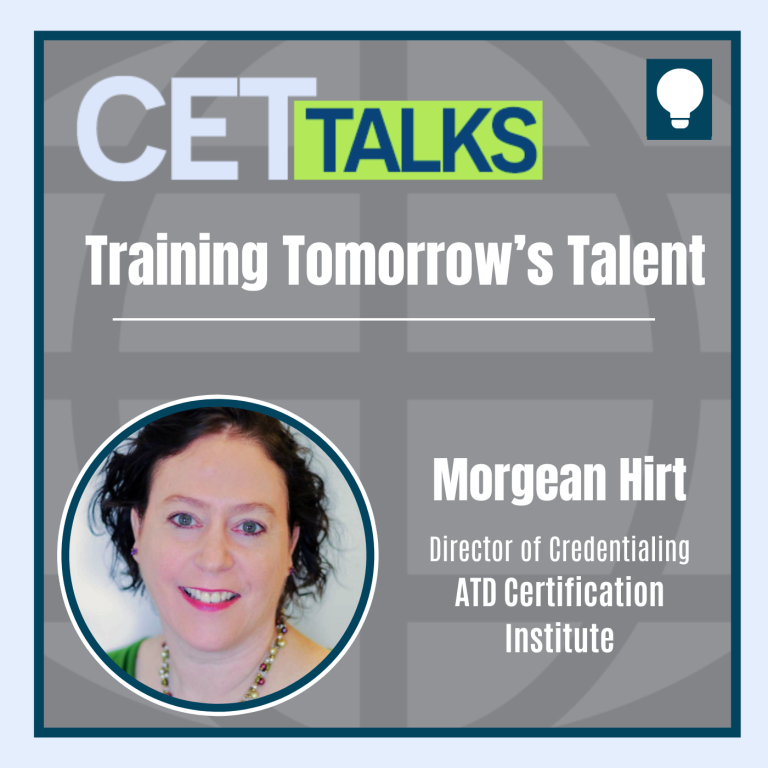
Episode 31: Training Tomorrow’s Talent: Exploring Certification, Standards, and Impact with ATD’s Certification Institute
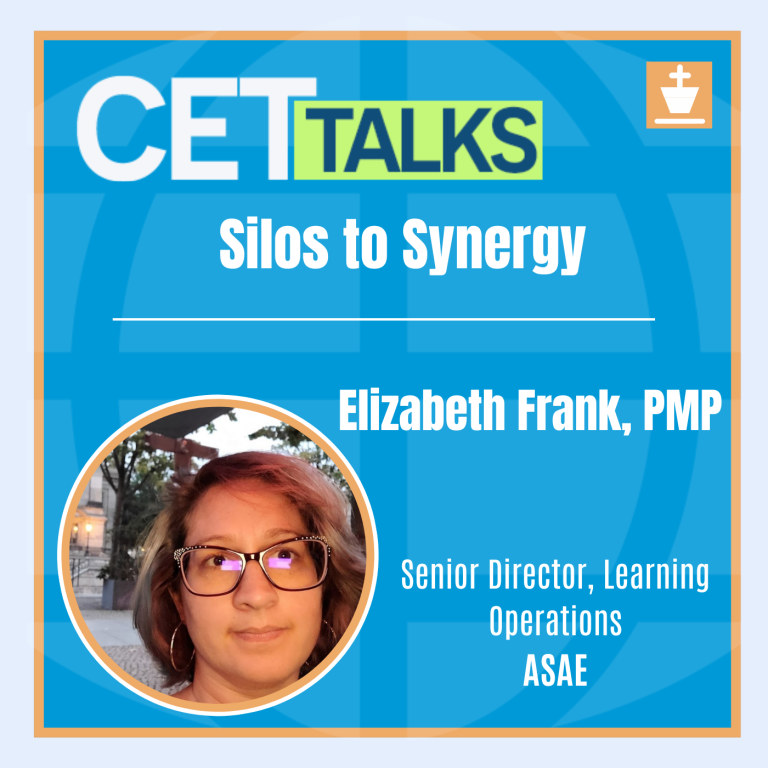
Episode 30: Silos to Synergy: Holistic Approaches to Creating Collaborative Learning

Episode 29: Credentials in Crisis: Challenges and Opportunities in Modern Education Recognition
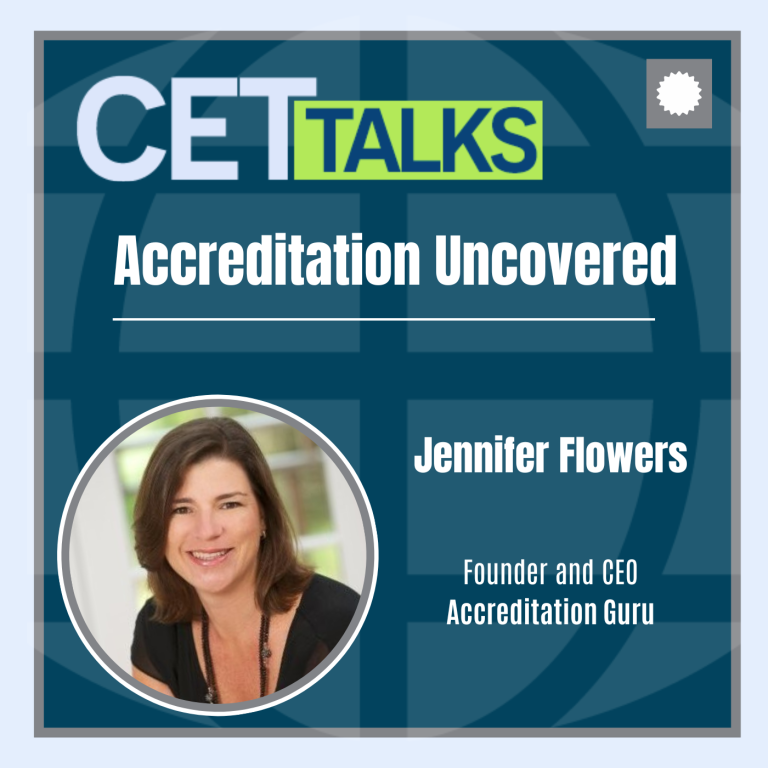
Episode 28: Accreditation Uncovered: Essential Insights from an Industry Leader
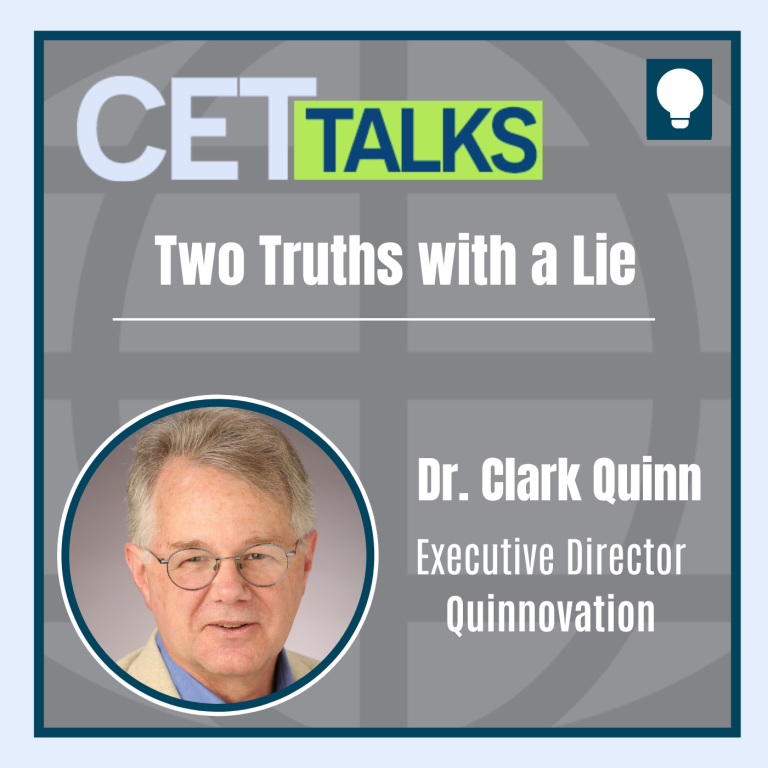
Episode 27: Two Truths with a Lie: Managing the Myths of Modern-Day Learning
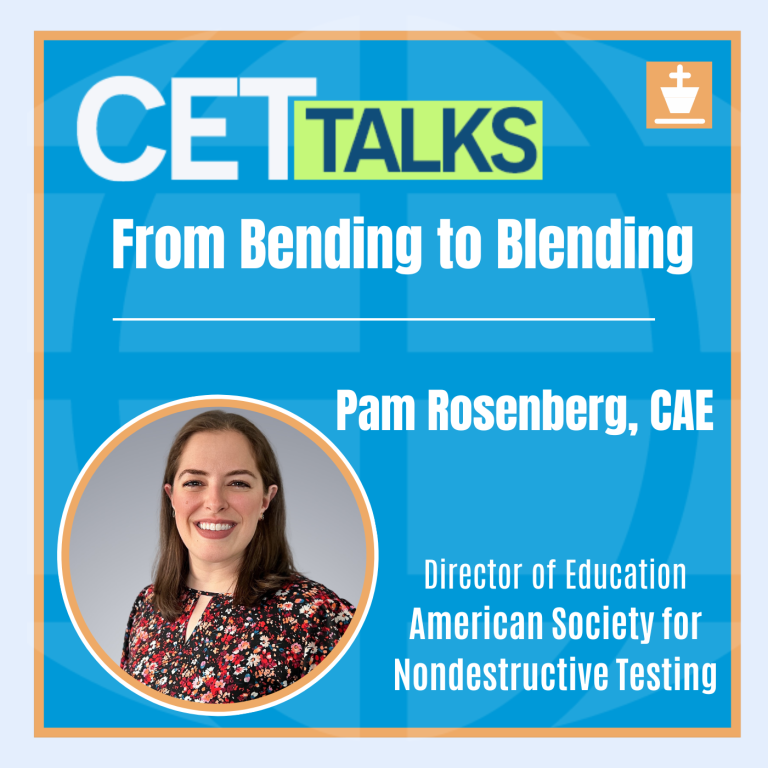
Episode 26: From Bending to Blending: Best Practices in Integrating Externally-Created Content
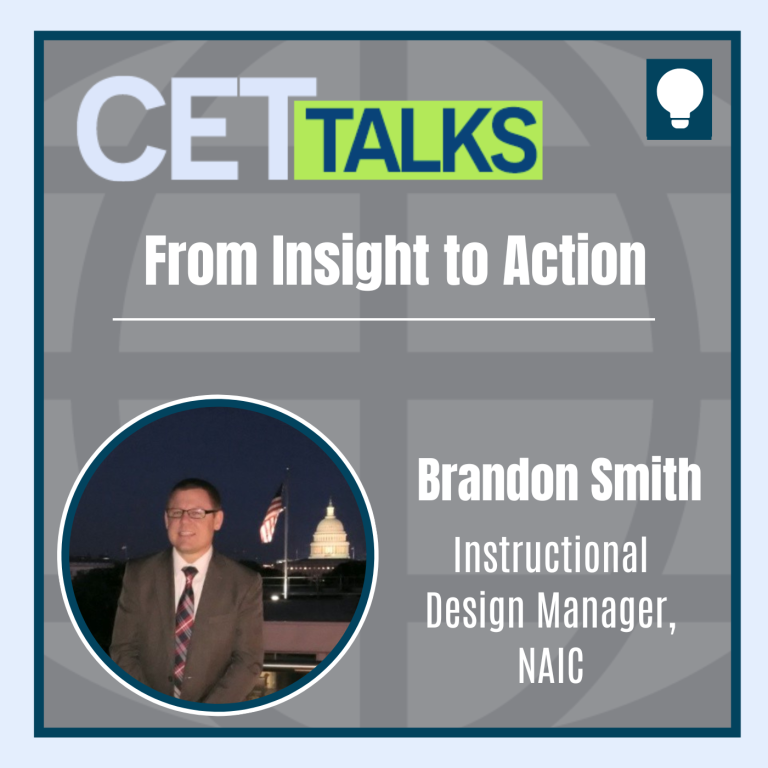
Episode 25: From Insight to Action: Charting the Career Path of a SME-turned-ISD
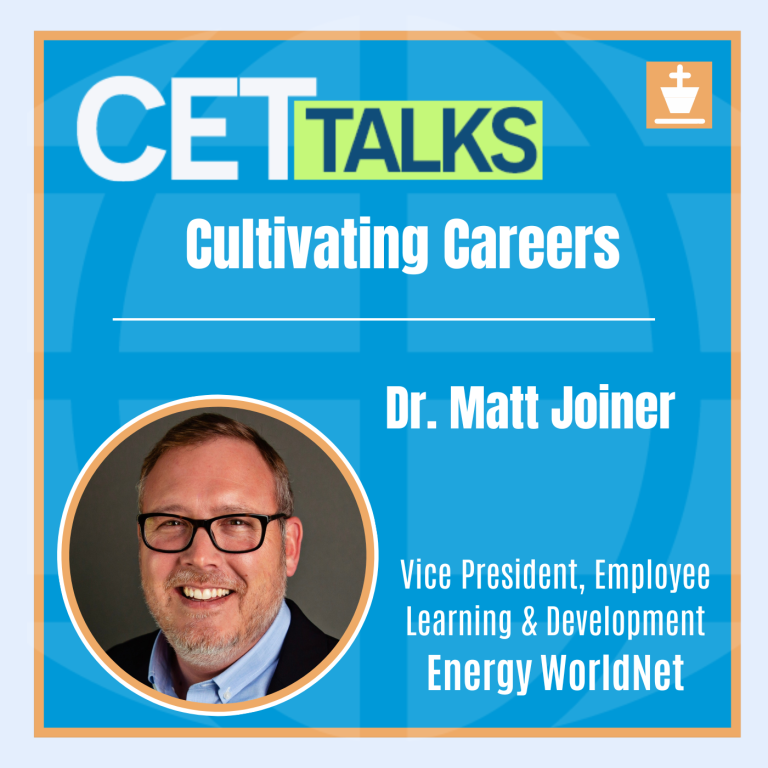
Episode 24: Cultivating Careers: The Power of Employee Engagement for Organizational Success
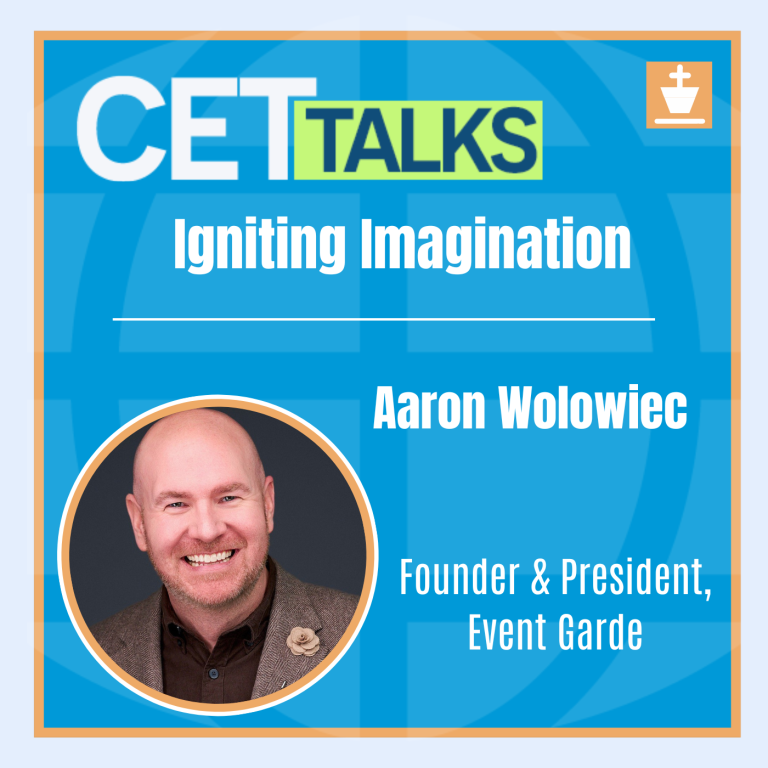
Episode 23: Igniting Imagination: Crafting Creativity in Training Environments
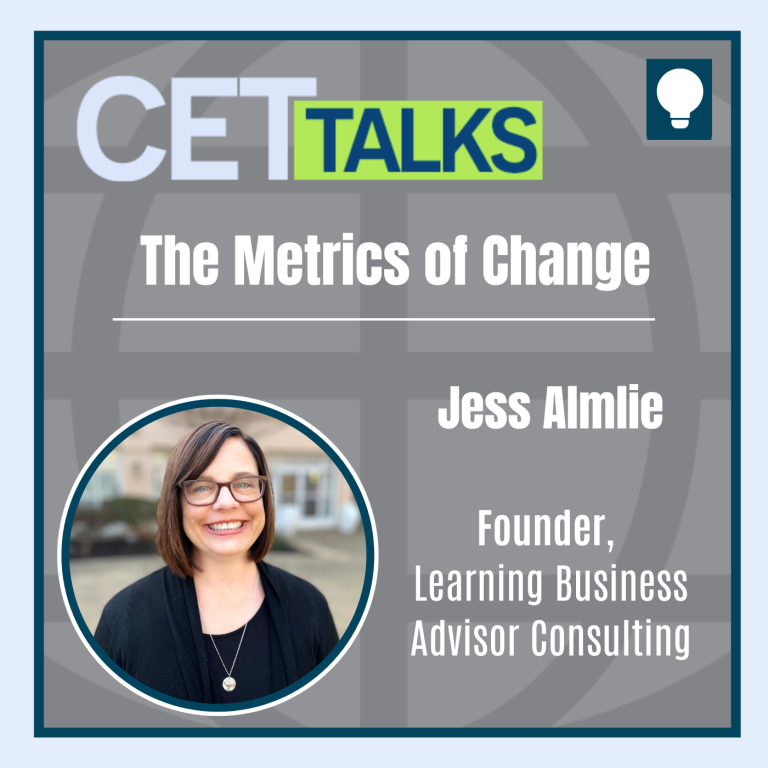
Episode 22: The Metrics of Change: Navigating Purposeful Measurement in L&D
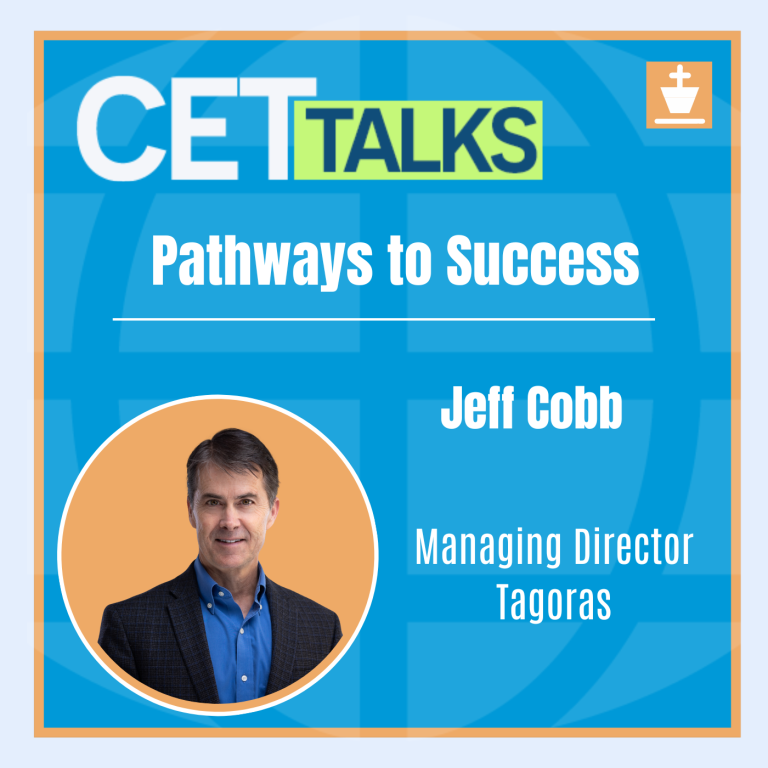
Episode 21: Pathways to Success: The Value of Lifelong Learning through Digital Credentials
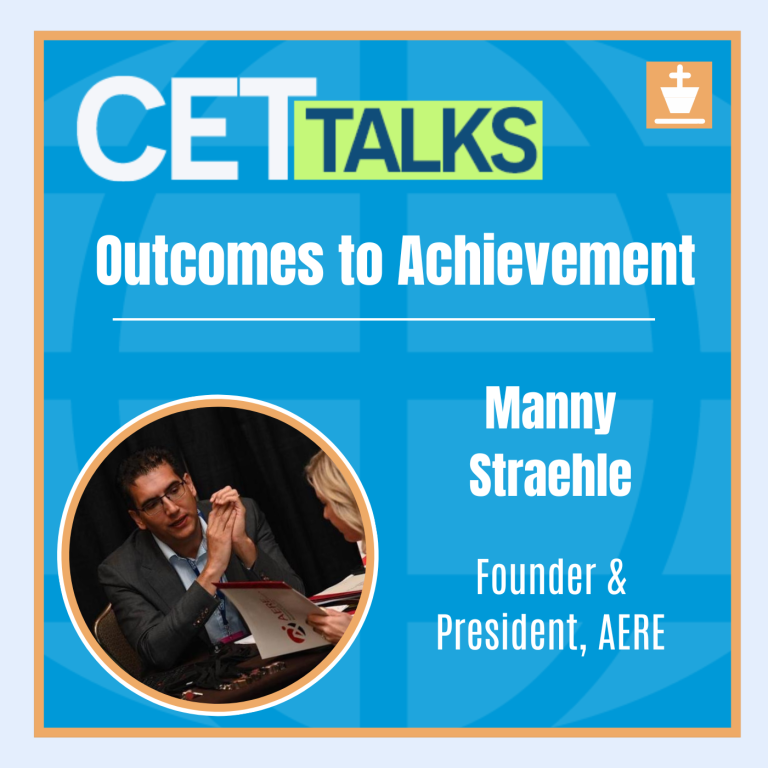
Episode 20: Outcomes to Achievement: Crafting Tomorrow’s Workforce Through Competency Models
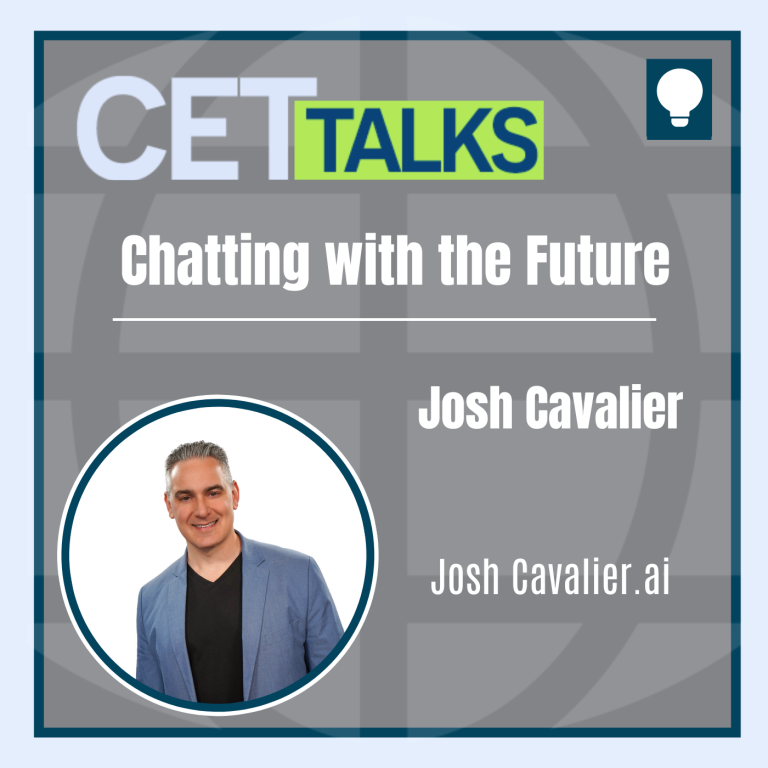
Episode 19: Chatting with the Future: Enhancing AI Output Through Prompt Engineering
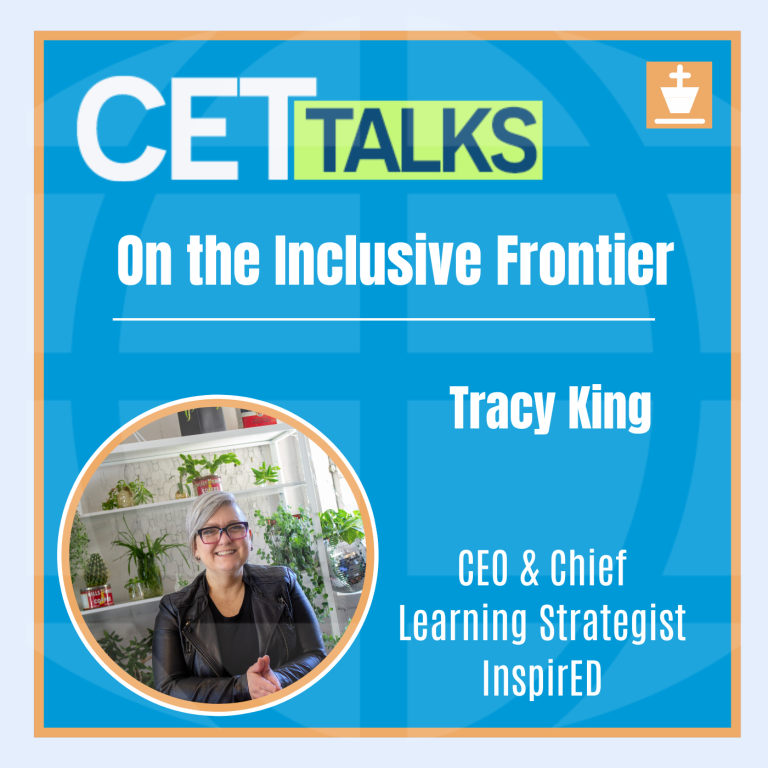
Episode 18: On the Inclusive Frontier: Harnessing Neurodivergence in Modern Training

Episode 17: Designing with Purpose: Strategies for Accessible e-Learning Development
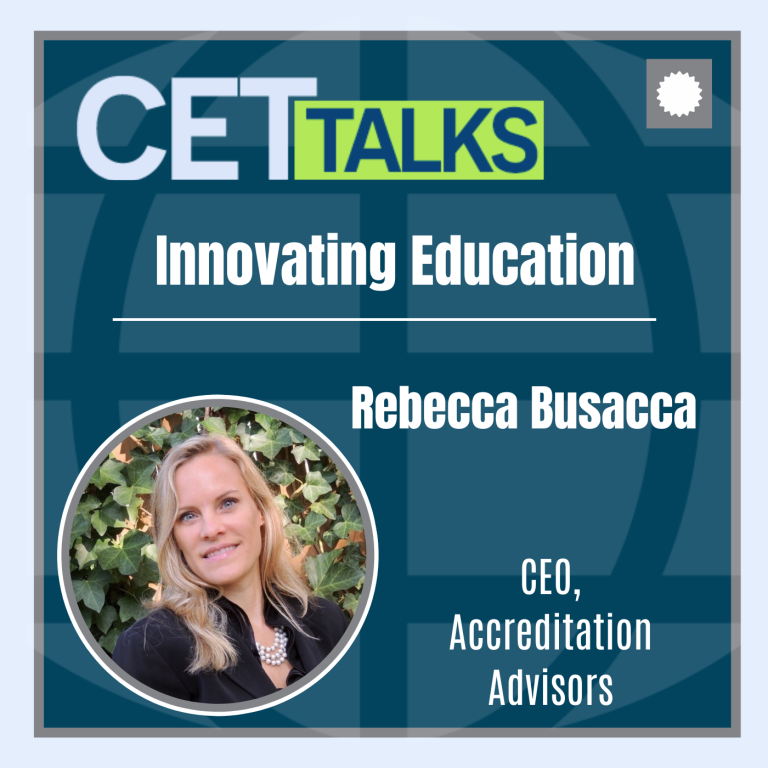
Episode 16: Innovating Education: Navigating Accreditation for Short-Term Training
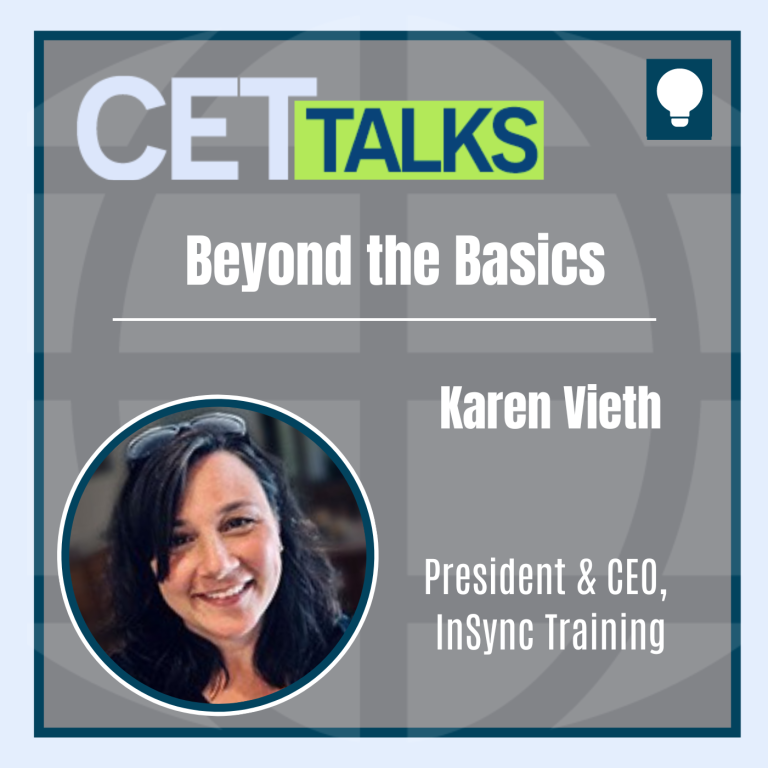
Episode 15: Beyond the Basics: Elevating Virtual Training through Expert Facilitation
